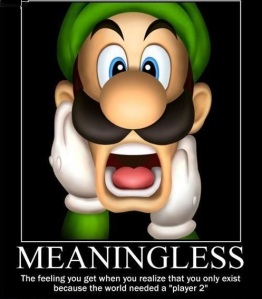 Name: Henry Alfred Kissinger
Name: Henry Alfred Kissinger
Occupation: Statesman and Diplomat
Birth date: May 27th 1923
Time in Government: 1969 to 1977
Political party: Republican
Religious Views: Judaism
.
Henry Kissinger is a German-born American statesman who was born on May 27, 1923. A recipient of the Nobel Peace Prize in 1973, he served as National Security Adviser and Secretary of State in the administrations of Presidents Richard Nixon and Gerald Ford.
Kissinger played a prominent role in United States foreign policy between 1969 and 1977. During this period, he strengthened the policy of détente with the Soviet Union, organised the opening of diplomatic relations with the People’s Republic of China, and was a major player in the Nixon Administration’s Vietnam policy.
(Should you come accross vocabulary you don’t understand, it may well be in a small glossary at the end of the page).
The Early Years
As a child, Kissinger encountered anti-Semitism daily. An avid soccer fan, he defied laws banning Jews from professional sporting events to attend matches, receiving several beatings at the hands of the stadium guards. These experiences made a lasting impression on Kissinger.
He excelled at the local Jewish school and had hoped to attend a prestigious state-run high school. However, by the time he was old enough to apply, the school had stopped accepting Jews. Sensing the impending tragedy of the Holocaust, aged only 15, Kissinger and his family decided to flee Nazi Germany.
On August 20, 1938, the Kissingers set sail for New York City by way of London. His family was extremely poor upon arrival in the United States, and Kissinger immediately went to work because of it. However at the same time, Kissinger enrolled at New York’s George Washington High School, where he learned impeccable English and excelled in almost all areas of study. He graduated from high school in 1940 and continued on to the City College of New York, where he studied to become an accountant.

Even at this early stage, Henry Kissinger had a reputation for being a tough negotiator with a very high intelligence
World War 2
In early 1943 Kissinger was drafted into the US army, and in June 1943 he was officially naturalized as a US citizen. Because of his fluency in German and his intellect Kissinger was swiftly moved into military intelligence. During the American push into Germany, Kissinger was given the role as administrator of a City (despite only being a Private at the time) and he swiftly organised a civilian council. Following his administrative successes, Kissinger was promoted to Sergeant and awarded the Bronze Star for hunting officers of the Gestapo.
Harvard
It was during the war that Kissinger decided he did not want to follow Accountancy and instead wished to study the Political Sciences and as such, when he returned to the US in 1947 he enrolled at Harvard. He graduated with his degree in 1950, however he stayed at Harvard to complete both a Masters (1952) and Doctorate (1954) before taking up a teaching position at the same institution. While he was focusing on Academia, he also rose to fame by publishing several books on US foreign policy (particularity regarding Nuclear Weapons) and was a special adviser to both President’s Kennedy and Johnson. Kissinger’s term with Harvard finished however in 1969 when he took the position of National Security Adviser to President Nixon.
Time in Government
Kissinger held two positions in the United States Government: as National Security Adviser from 1969-75, and then as Secretary of State from 1973-77 (and in the process becoming the first person ever to do so who was born outside of the US). A stringent supporter of Foreign Policy always promoting US Interests, throughout the Nixon Administration, Kissinger had three main priorities: creating more amiable relations between the United States and The Soviet Union, the creation of formal diplomatic relations with the People’s Republic of China and a US victory in Vietnam.
 The first two priorities could be done almost simultaneously as Kissinger planned to put pressure on the Soviet Union to lower hostilities by showing the US thawing relations with China (which I wanted to do anyway, even if it hadn’t had the same result on Russia). Kissinger brought about the closer relationship with China through two groundbreaking meetings between President Nixon and Chairman Mao Zedong (in 1971 and 1972) while at the same time he was getting the Soviet Union to sign two pacts limiting the use and creation of Strategic Arms. While Kissinger’s policy regarding China and Russia was arguably a success, diplomatic relations were overshadowed by the Watergate Scandal in the later years of the Nixon Administration. (See Nixon and Kissinger pictured).
The first two priorities could be done almost simultaneously as Kissinger planned to put pressure on the Soviet Union to lower hostilities by showing the US thawing relations with China (which I wanted to do anyway, even if it hadn’t had the same result on Russia). Kissinger brought about the closer relationship with China through two groundbreaking meetings between President Nixon and Chairman Mao Zedong (in 1971 and 1972) while at the same time he was getting the Soviet Union to sign two pacts limiting the use and creation of Strategic Arms. While Kissinger’s policy regarding China and Russia was arguably a success, diplomatic relations were overshadowed by the Watergate Scandal in the later years of the Nixon Administration. (See Nixon and Kissinger pictured).
The greatest problem which Kissinger faced while in Government was the situation in Vietnam. By the time that Nixon and Kissinger were both deciding policy, the war in Vietnam was already very unpopular, expensive and out of control. In implementing Nixon’s promise to gain ‘Peace with Honour’, Kissinger implemented the large scale bombing of Vietnam and eventually Cambodia while also playing a key part in the creation of Vietnamization. He attempted to mediate negotiations between the US and North Vietnamese for some time before finally being able to issue a ceasefire and withdrawal order to the US troops in Vietnam after the 1973 Paris Peace Talks (however US troops didn’t actually fully leave until 1975 when the North Vietnamese overthrew the South and pushed the US out).

It was because of the apparent peace that Kissinger and Le Duc Tho (The North Vietnamese Negotiator) were jointly offered the 1973 Nobel Peace Prize. Kissinger accepted, while Le Duc Tho refused.
Pictured left: Kissinger celebrates being named jointly Time’s ‘Men of the Year’ with President Nixon in 1972
Following Vietnam, Kissinger also helped resume diplomatic relations between the US and Egypt and he remained in office under President Gerald Ford after Nixon’s resignation in 1974. Kissinger’s role as a main player in the US Government however ended when President Carter beat Ford in the 1977 election.
The Later Years
Following his role in Government, Kissinger was offered a position at the University of Colombia, however this was met by such strong student opposition that they were forced to cancel the offer. Despite this, the University of Georgetown offered Kissinger a job in their Centre for International Studies which he then accepted. He also continued under Presidents Ronald Reagan and George Bush to serve on the Foreign Intelligence Advisory Board as well as supporting the Government on various international commissions and investigations.
As well as returning to Academia, Kissinger continues to participate in policy groups, such as the Trilateral Commission, and to maintain political consulting, speaking, and writing engagements.
Only rarely in history do statesmen find an environment in which all factors are so malleable; before us, I thought, was the chance to shape events, to build a new world, harnessing the energy and dreams of the American people and mankind’s hopes.

Glossary:
Detente: The thawing of foreign relations with another power.
Gestapo: The Nazi Military Police.
Peace with Honour: The idea that the US could back out of Vietnam without losing its international credability.
Vietnamization: The process of training up the ARVN (South Vietnamese Army) to take over from US troops.
PS; Special thanks to Google for the images!







 Name: Henry Alfred Kissinger
Name: Henry Alfred Kissinger









